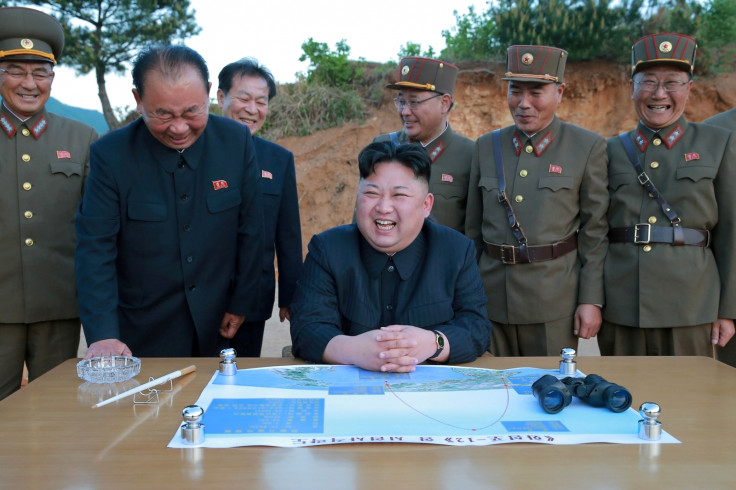North Korea would target Donald Trump in Nuclear War, says new report
Numerous sites across the Pacific and the US could be targeted by Pyongyang.
A major new report has identified the key locations North Korea would target in the event of war.
The European Council on Foreign Relations (ECFR) compiled the study, which revealed that numerous sites across the Pacific and the US could be targeted by Pyongyang.
Based on what the ECFR described as sources from North Korea itself, they have compiled a hitlist of possible attack sites the country is considering.
These included using nuclear weapons to attack Manhattan, the White House, the Pentagon and the US territory of Guam.
Away from the US, the list includes sites inside South Korea such as the Blue House, the official residence of the head of state.
Japan was also on the list of possible targets, including major cities such as Kyoto, Tokyo and Osaka.
The study found that the there was huge difficulty in understanding the terms for which North Korea would launch a missile strike – simply because they have no official doctrine that defines it.
They said that because of this, it was vital to understand the "strategic thinking" of Pyongyang and how it views its growing arsenal.
The paper noted that since Kim Jong-un came to power in 2011, he has taken a stronger stance on nuclear weapons than his father, Kim Jong-il.
Under Il, there had been hopes for diplomacy to help further the process of nuclear disarmament. However, Un has pushed for a diversification of their weapons programme, which now has 15 different missiles under development.
The concerns over 'first-use' have been debated this year already, with China stating that it would not intervene in a North Korea-US conflict if Pyongyang shoots first, but it would be involved if Washington was to make the first move.
"From North Korea's perspective, striking first would be a rational act, because at the present time the regime would be unlikely to survive a first strike from the US; if it fears it is about to be struck, it might as well strike first", the report found.
"From the point of view of the US, meanwhile, if it did strike, it cannot be sure of complete elimination of North Korea's capacity to strike with nuclear weapons in the early stages of the conflict."
To counter the ever-increasing threat from North Korea, the ECFR recommended that a push for further sanctions continues.
But the report noted that nations should "abandon the idea that sanctions alone will create the conditions for nuclear disarmament".
It comes amid a nervous year for those in the region amid a spike in tensions and rhetoric, particularly between Kim Jong-un and Donald Trump.
Fresh UN sanctions and ongoing missile tests have created a tense atmosphere between the two nations.
Over the summer, Donald Trump threatened the hermit nation with "fire and fury" if they continue their nuclear missile developments.
This prompted angry responses from Pyongyang. including the state-run newspaper calling for the Trump to face the death sentence.





















